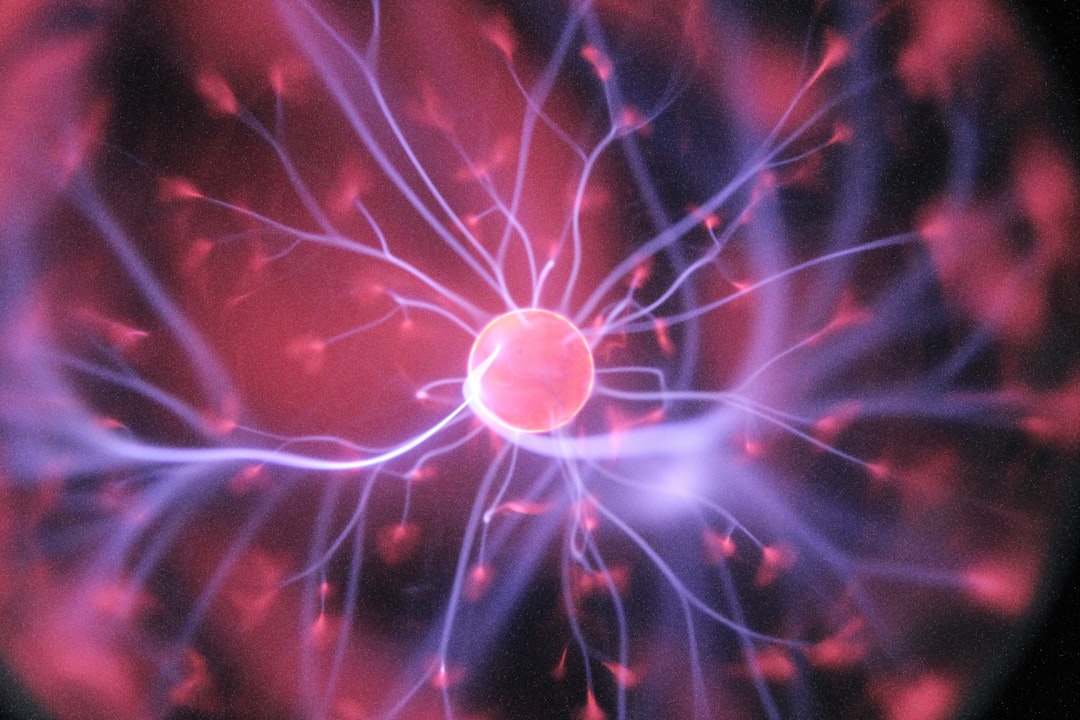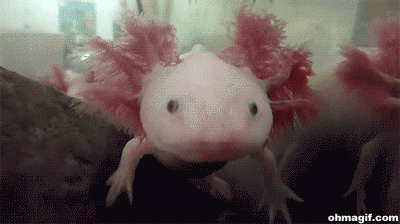- Self Preservation Life Jacket
- Posts
- 🧠 Your Mind Matters in Sobriety: Rewiring the Brain for a Resilient Recovery
🧠 Your Mind Matters in Sobriety: Rewiring the Brain for a Resilient Recovery
inner workings of your brain and how understanding neuroscience

🔬🧠 Your Mind Matters in Sobriety: Rewiring the Brain for a Resilient Recovery
Are you ready to tap into the fascinating world of neuroscience and discover how it intersects with your sobriety journey? Let's explore the inner workings of your brain and how understanding neuroscience can empower you, especially as a woman dedicated to living an alcohol-free life.
🔍 Quick Glance: Rewiring the Brain for Sobriety 🧠✨
🧬 Empowerment Through Neuroscience: Discover how the brain can repair and adapt during sobriety.
🔗 Neuroplasticity Unleashed: Sobriety boosts myelin regeneration and corpus callosum revival, enhancing brain communication and coordination.
🌱 Building a Resilient Brain: Sobriety reduces inflammation, improves cognitive functions, and enhances emotional regulation.
🧪 Genetics & Addiction: Unpack the role genes play in addiction and learn how sobriety can be tailored to your unique DNA.
💪🏽 Stress, Sobriety, & the Brain: Learn how stress affects addiction and strategies to protect your brain.
📚 Sobriety Book Recommendations: Deepen your understanding with three must-read books on recovery.
🧠 The Brain's Healing Power
Sobriety is not just about avoiding alcohol; it's about allowing your brain to repair, rebuild and recharge itself. Research has shown that forced abstinence from substance use can lead to significant changes in DNA methylation in myelin genes within the corpus callosum, affecting neural pathways and potentially benefiting recovery (Nielsen et al., 2012). This process is a glimpse into the brain's remarkable plasticity and its ability to heal.
Neuroplasticity Unleashed 🔗
Myelin Regeneration: When you say goodbye to alcohol, something extraordinary happens. Forced abstinence initiates changes in DNA methylation, particularly in myelin genes. Myelin is the unsung hero—the protective coating of nerve fibers in your brain. Think of it as the insulation around electrical wires; it enables swift and smooth communication between neurons. Nielsen et al. (2012) suggest that sobriety may kickstart the brain's natural repair kit, patching up and boosting the efficiency of your neural pathways.
Corpus Callosum Revival: This bundle of nerve fibers is the superhighway that connects the hemispheres of your brain, allowing them to chat, collaborate, and create harmony in your thoughts and actions. With sobriety, the corpus callosum can begin to heal from any damage caused by alcohol, potentially enhancing coordination and cognition.
Brain Plasticity: Your brain is not set in stone; it's more like clay, constantly molding and adapting. Neuroplasticity is the brain's ability to reorganize itself by forming new neural connections throughout life. Sobriety provides the perfect environment for your brain to flex its plasticity muscles, learning new ways to function optimally without the influence of alcohol.

The Power of Persistence: Your Brain on Recovery 🌱
When you commit to an alcohol-free life, you are investing in your brain's resilience. Each day you remain sober, you are:
* Reducing Inflammation: Chronic use of alcohol can lead to inflammation in the brain, but your sober lifestyle helps to cool the fires, fostering a more conducive environment for healing.
* Improving Cognitive Functions: Memory, attention, problem-solving—these cognitive superheroes start to bounce back, ready to tackle your daily adventures with renewed vigor.
* Enhancing Emotional Regulation: With a healthier brain, you can navigate the emotional seas with greater skill, finding peace amidst the waves of life.
Your brain's capacity for healing is a testament to your strength and the power of the choices you make. As you continue on your path of sobriety, know that with each day, you're not just surviving; you're thriving, as is the incredible universe inside your head.
The Role of Genetics in Addiction
Understanding the molecular neurobiology and genetics behind addiction is crucial. Studies have found that addictive behaviors are not only influenced by environmental factors but also by genetic predispositions (Kreek et al.). As you continue your sober lifestyle, know that your genetics aren't your destiny. They're a roadmap that can guide you toward better health strategies.
The intricate landscape of addiction extends beyond the immediate environment and into the complex world of molecular neurobiology and genetics. Pioneering research from Kreek and colleagues has highlighted the undeniable genetic underpinnings of addiction. Notably, the dopamine transporter gene (SLC6A3/DAT1) has been identified as a key player in regulating dopamine, a neurotransmitter integral to the reward system of the brain. Certain alleles of DAT1 can modulate dopamine reuptake, affecting an individual's risk for developing addictive behaviors. The mu-opioid receptor gene (OPRM1) is another critical genetic factor. It plays a central role in how we respond to opioids and can influence the brain's reward and reinforcement mechanisms, making some of us more susceptible to opioid addiction.
These studies have unearthed that addictive behaviors are not solely at the mercy of environmental triggers; they are also shaped by the fabric of our DNA. Indeed, specific genetic profiles, encompassing variations in genes like DAT1 and OPRM1, can predispose individuals to addiction, influencing pathways that affect reward, compulsion, and the enduring nature of substance dependence. By recognizing the influence of such genes, individuals armed with this knowledge can collaborate with healthcare providers to tailor a sobriety plan that is as unique as their genetic blueprint.
Stress, Sobriety, and the Brain
The neuroscience of addiction underscores the profound and multifaceted influence that stress exerts on addiction biology. The brain is a remarkably plastic organ, continuously shaping and reshaping its neural connections in response to our experiences (thank God!)– a phenomenon known as neuroplasticity. Chronic stress, characterized by elevated levels of cortisol and disruption of homeostasis, can induce adverse changes in the brain's architecture and chemistry. This heightened state of stress can lead to alterations in neural circuits, particularly those related to reward, motivation, and memory, making the brain more vulnerable to addictive behaviors.
Neurotransmitters, which are crucial brain chemical messengers such as dopamine, norepinephrine, and serotonin, play a key role in how we process stress and regulate mood. Chronic stress can dysregulate these neurotransmitter systems, leading to imbalances that affect not only our emotional state but also our susceptibility to addictive patterns.
As you stride forward on your path to recovery, it's imperative to cultivate strategies that can buffer the impact of stress on your brain. Mindfulness-based practices, for example, have been shown to modulate stress responses, potentially restoring neurotransmitter balance and aiding in the reformation of healthier neural pathways. Relaxation techniques, such as deep breathing exercises, progressive muscle relaxation, and visualization, can activate the parasympathetic nervous system, reducing cortisol levels and fostering a state of calm. Lucky for you, I'm a mindfulness and meditation teacher, and when you are part of the Golden Sunshine, you get monthly practices delivered to your inbox for stress-free living!
Through a combination of mindfulness, relaxation, physical activity, and social support, you can not only safeguard your sobriety but also foster a more resilient and healthy brain environment.

📚 Three must-read best-sellers that will deepen your understanding:
"The Recovering: Intoxication and Its Aftermath" by Leslie Jamison – A blend of memoir, cultural history, and literary criticism that offers a fresh perspective on recovery. Grab on Amazon.
"Clean: Overcoming Addiction and Ending America’s Greatest Tragedy" by David Sheff – An eye-opening view of addiction as a preventable, treatable disease, not a moral failing. Get it on Amazon.
"Unbroken Brain: A Revolutionary New Way of Understanding Addiction" by Maia Szalavitz – Challenges traditional views on addiction and examines the complexities of the brain. READ IT!
Let's Wrap It Up with a Chuckle and a Bow 🎀 😄
Why don't scientists trust atoms anymore? Because they make up everything!
Did you know? Your brain can read up to 1,000 words per minute. So go ahead, speed-read these jokes, and enjoy a good laugh faster than you ever imagined! 🚀
Keep nurturing your mind and spirit, and remember – every step you take is one where your brain is your ally in sobriety.
Stay curious and connected,
Lane + Tamar 👯♀️
❤️🔥 From our partners:
I love my Apollo, and so does my son!💖 A wearable that trains your body to stress less and sleep more deeply. Neuroscientists and physicians developed Apollo Neuro’s touch therapy technology to help calm your nerves and clear your mind, melting away stress using soothing vibrations for better sleep, relaxation, and focus. Tested across thousands of users in the clinic and in the real world, Apollo wearable users experience ~40% less stress and anxiety, up to 25% increase in focus, and can gain up to 30 minutes of sleep a night. Grab yours today with a discount!
One of my favorite supplements, Primeadine, was just voted to be the best vitamin and supplement for menopause and anti-aging at the Janey Lee Loves Awards, curated by BBC Radio. Grab 15% off your first order when you order here and use code: LANE15 💪🏽 You can even share Primeadine and earn💰. Register here.
None of this is medical advice. This newsletter is strictly educational and is not medical advice or a solicitation to buy any supplements or medications or to make any medical decisions. Always be careful. Always consult a professional. Please don't sue us. 😇
The Self Preservation LifeJacket is reader-supported. When you buy through links on our site, we may earn an affiliate commission to help keep the site free for everyone. We do not accept money for any reviews provided, and the views, opinions, and recommendations are our own.



